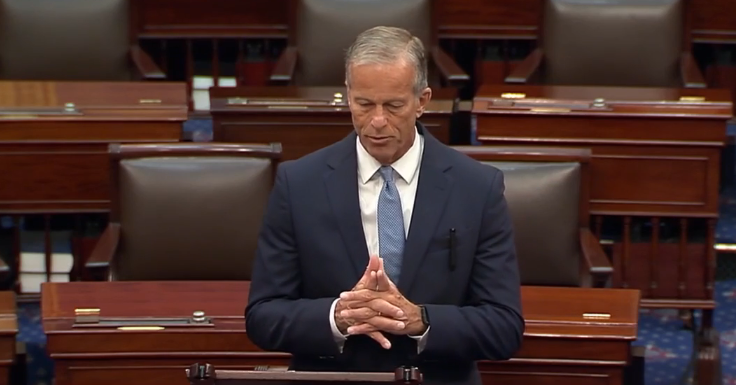
WASHINGTON, D.C. — The U.S. Senate has confirmed 107 of President Donald Trump’s nominees in a single vote, 51–47, using recently changed procedural rules designed to clear a backlog of executive branch positions.
The confirmations, largely along party lines, were made possible by a rule change allowing multiple non-judicial nominees to be bundled and voted on together with a simple majority. Senate Republicans argued the new process restores efficiency to a system slowed by partisan obstruction, while Democrats warned that it reduces scrutiny and limits oversight of nominees.
The slate of confirmed officials includes ambassadors, agency heads, and U.S. attorneys, among them Herschel Walker, confirmed as Ambassador to the Bahamas, and Sergio Gor, confirmed as Ambassador to India. Several key domestic agency leadership positions were also filled, including posts at the Federal Railroad Administration.
This batch of 107 confirmations follows an earlier vote that approved 48 nominees under the same expedited rules, significantly shrinking the administration’s backlog of pending appointments. By streamlining the process, Senate Republicans aim to ensure that critical government positions are staffed and agencies can operate effectively.
The procedural shift, sometimes referred to as the “nuclear option,” reduces the ability of the minority party to block nominations with extended debate or procedural maneuvers. Supporters say it addresses longstanding inefficiencies, while critics argue it could weaken Senate oversight and diminish the opportunity for careful consideration of each nominee’s qualifications.
Political analysts note that the vote underscores the Senate’s growing partisanship. While the new rules accelerate confirmations, they also raise questions about transparency and the balance of power between the majority and minority parties in future legislative sessions.
With key positions now filled, attention turns to how quickly agencies implement new policies and programs. Observers also will watch whether this approach is extended to higher-profile nominations, such as Cabinet secretaries or federal judges, or remains confined to non-judicial and sub-cabinet appointments.
By confirming this large number of nominees in one vote, the Senate has not only cleared a significant backlog but also signaled a potential long-term shift in how presidential appointments are handled — prioritizing speed and efficiency while stirring debate over oversight and procedural norms.




